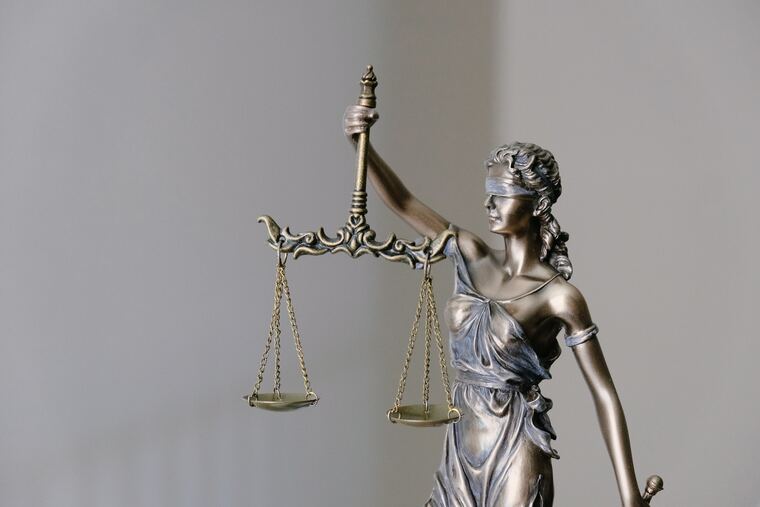In today’s fast-paced digital world, innovation and technology are reshaping every industry, including the legal sector. As legal professionals strive to keep up with increasing workloads and complex contracts, they face numerous challenges in ensuring accuracy, efficiency, and consistency in contract review.
Enter ChatGPT – a groundbreaking artificial intelligence (AI) tool that is transforming the way legal firms approach contract review. With its unparalleled capabilities and potential for streamlining processes, ChatGPT has become a game-changer in the legal industry.
We will delve into how ChatGPT is revolutionizing the process of legal contract review. From overcoming current challenges to showcasing real-life success stories and addressing potential concerns, we’ll explore how AI-powered tools like ChatGPT can be harnessed to enhance productivity and deliver exceptional results. So buckle up as we navigate through the exciting possibilities of combining cutting-edge technology with legal expertise!

The current challenges in legal contract review
Legal contract review is an essential part of the legal profession, ensuring that agreements are fair, accurate, and comply with applicable laws. However, this process can be time-consuming and tedious for lawyers and paralegals. The current challenges in legal contract review stem from the sheer volume of contracts that need to be reviewed and analyzed on a daily basis.
Manual contract review is prone to human error. With thousands of pages to sift through, it’s easy for even the most meticulous reviewer to miss important details or make mistakes. Additionally, inconsistencies in language or formatting can make it difficult to identify key provisions or clauses.
Traditional contract review methods lack efficiency. Lawyers often spend hours poring over documents line by line, searching for specific information or potential risks. This not only consumes valuable time but also delays decision-making processes.
Maintaining consistency across multiple reviewers poses another challenge. Each individual may have their own interpretation of contractual terms and conditions which may lead to inconsistencies in reviews.
Keeping up with constantly evolving regulations can be overwhelming for legal professionals. Without access to comprehensive databases or advanced search functionalities within contracts themselves, staying updated becomes a daunting task.
These challenges highlight the need for innovative solutions that can streamline the contract review process while maintaining accuracy and effectiveness. Fortunately ChatGPT offers a promising solution!
How ChatGPT can streamline and improve the contract review process
In today’s fast-paced legal industry, contract review is a crucial but time-consuming task. Lawyers and paralegals spend hours poring over documents, looking for errors or potential risks. But what if there was a way to streamline this process and make it more efficient? Enter ChatGPT – an AI-powered tool that has the potential to revolutionize contract review.
By leveraging the capabilities of ChatGPT, legal professionals can automate certain aspects of the contract review process. The AI system can quickly analyze large volumes of contracts, identifying key clauses and flagging any discrepancies or areas that require further attention. This not only saves valuable time but also reduces human error in the review process.
With its natural language processing abilities, ChatGPT can understand complex legal terminology and provide instant suggestions or explanations when reviewing contracts. It acts as a virtual assistant for lawyers, offering insights into common contractual issues and best practices.
Using ChatGPT for contract review promotes consistency across various projects. Since it follows predefined guidelines set by legal experts, it ensures that all contracts are reviewed with the same level of scrutiny and attention to detail.
Implementing ChatGPT in real-life scenarios has already shown promising results. Legal firms have reported significant time savings in their contract review processes while maintaining quality standards. For example, a law firm specializing in mergers and acquisitions used ChatGPT to analyze hundreds of due diligence reports within days instead of weeks.
Like any emerging technology, there are some concerns surrounding the use of AI in legal contract review. One major concern is data security and confidentiality since sensitive information is involved during document analysis. Additionally, there may be limitations on certain types of contracts that require deep domain expertise beyond what current AI systems can offer.
Real-life examples of successful implementation of ChatGPT in legal firms
Real-life examples of successful implementation of ChatGPT in legal firms have shown how this AI-powered tool can revolutionize the contract review process. One law firm, for instance, used ChatGPT to accelerate their due diligence by automating the initial review of contracts. The system was able to analyze and categorize large volumes of documents quickly and accurately, saving lawyers countless hours.
Another example comes from a corporate legal department that integrated ChatGPT into their contract management system. With its natural language processing capabilities, ChatGPT could extract key terms and clauses from contracts, allowing lawyers to easily search and retrieve relevant information when needed. This not only improved efficiency but also reduced the risk of missing important details.
In addition to these practical applications, some firms have even used ChatGPT as a virtual assistant for client interactions. By training it with specific legal knowledge and terminology, they were able to provide instant answers to common questions or concerns raised by clients regarding their contracts.
These real-life examples demonstrate the tangible benefits that ChatGPT can bring to legal professionals. It enhances productivity by significantly reducing manual workloads while improving accuracy in contract review processes. As more firms adopt this technology, we can expect further advancements in AI-assisted legal services.
Future possibilities for ChatGPT and the legal industry
The potential of ChatGPT to revolutionize the legal industry extends far beyond contract review. As AI technology continues to advance, we can expect to see even more exciting applications emerge.
One area where ChatGPT could be immensely helpful is in legal research. Lawyers spend countless hours sifting through case law and statutes to find relevant information for their cases. With its ability to understand complex legal language and analyze vast amounts of data, ChatGPT could significantly speed up this process by providing lawyers with quick and accurate answers to their research queries.
Another promising possibility is using ChatGPT as a virtual legal assistant. Imagine having an AI-powered chatbot that can draft letters, prepare court documents, or provide basic legal advice based on the user’s input. This would not only save lawyers valuable time but also make legal services more accessible and affordable for individuals who cannot afford traditional representation.
As natural language processing capabilities improve, there may be opportunities for ChatGPT to assist in dispute resolution. By analyzing past cases and identifying patterns in arguments or reasoning strategies used by successful litigators or mediators, it could provide valuable insights that help parties reach fair settlements without going through lengthy court proceedings.
In addition to these practical applications, there are ethical considerations that need careful attention as well. Ensuring that AI systems like ChatGPT adhere to privacy laws and maintain confidentiality is crucial when dealing with sensitive client information.
While there are still challenges ahead regarding the accuracy and reliability of AI systems in the legal field, it’s clear that ChatGPT has tremendous potential for transforming various aspects of the industry.
As researchers continue refining these models and addressing limitations such as biases or misinterpretations they might have during analysis – while keeping transparency at heart – we can expect further advancements in how machine learning interacts with law.
Conclusion
As we have seen, ChatGPT has the potential to revolutionize the legal contract review process. Its advanced capabilities in natural language processing and understanding make it a powerful tool for analyzing and extracting relevant information from contracts with speed and accuracy.
By leveraging ChatGPT’s abilities, legal firms can streamline their contract review workflows, saving time and resources while ensuring thoroughness and precision. The technology has already been successfully implemented in real-life scenarios, helping lawyers enhance their productivity and deliver better outcomes for their clients.
It is important to acknowledge that using AI for contract review does come with some concerns and limitations. ChatGPT may not always provide perfect answers or fully comprehend complex legal nuances. Human oversight is still crucial to ensure accuracy and mitigate any potential errors or biases introduced by the AI system.
Looking ahead, the future possibilities of ChatGPT in the legal industry are promising. As the technology continues to advance, we can expect even more sophisticated versions of AI-powered tools specifically tailored for legal professionals. These tools will likely be able to handle more complex tasks such as interpreting ambiguous clauses or identifying potential risks within contracts.
While AI cannot replace human expertise in law entirely, it has undeniable potential to greatly improve efficiency and effectiveness in legal contract review processes. By embracing technologies like ChatGPT responsibly alongside human judgment, legal professionals can unlock new levels of productivity and innovation in their practice. It’s an exciting time for the intersection of artificial intelligence and law – one where machines become trusted allies rather than adversaries.


